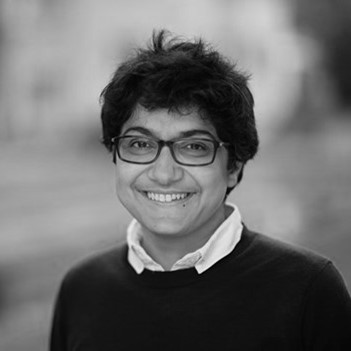Ridhi Kashyap
My research spans different areas of demography, including questions linked to mortality and population health, gender inequality, marriage and family, and migration and ethnicity.
I have worked on the demographic manifestations and implications of son preference as one of the most striking ways in which gender inequality interacts with demographic behaviours. In the areas of family demography, I have been studying the relationship between educational expansion, gender norms, and marriage and partnership patterns in different contexts. Since the beginning of the COVID-19 pandemic, I have worked on different aspects of the social and demographic impacts of the pandemic, including topics such as the pandemic’s mortality impacts in cross-national perspective and information-seeking dynamics and the role of trust in science for public health.
A central interest of my research has been to leverage computational approaches for demographic research within the growing area of Digital and Computational Demography, and forge links between demography and a growing interdisciplinary community of computational social science. Within the Leverhulme Centre for Demographic Science, I co-lead the strand on Digital and Computational Science.
From a methodological standpoint, I am interested in how computational methods (e.g agent-based models, microsimulation, machine learning) and new data streams (e.g digital trace data from the web and social media), can contribute to the study of population dynamics and social inequalities. An example of this is provided on www.digitalgendergaps.org, where we use social media data together with survey data to nowcast global digital gender inequalities in internet and mobile access, a global sustainable development goal (SDG) indicator for which there is a significant data gap.
From a substantive standpoint, I am interested in the impacts of mobile and internet technologies, and digitalisation more broadly, on demographic and sustainable development outcomes, such as gender inequalities, population health and empowerment.
Research areas: demography, digital and computational demography, computational social science, gender, sustainable development, mortality and population health, family, migration
Publications
Ridhi Kashyap
My research spans different areas of demography, including questions linked to mortality and population health, gender inequality, marriage and family, and migration and ethnicity.
I have worked on the demographic manifestations and implications of son preference as one of the most striking ways in which gender inequality interacts with demographic behaviours. In the areas of family demography, I have been studying the relationship between educational expansion, gender norms, and marriage and partnership patterns in different contexts. Since the beginning of the COVID-19 pandemic, I have worked on different aspects of the social and demographic impacts of the pandemic, including topics such as the pandemic’s mortality impacts in cross-national perspective and information-seeking dynamics and the role of trust in science for public health.
A central interest of my research has been to leverage computational approaches for demographic research within the growing area of Digital and Computational Demography, and forge links between demography and a growing interdisciplinary community of computational social science. Within the Leverhulme Centre for Demographic Science, I co-lead the strand on Digital and Computational Science.
From a methodological standpoint, I am interested in how computational methods (e.g agent-based models, microsimulation, machine learning) and new data streams (e.g digital trace data from the web and social media), can contribute to the study of population dynamics and social inequalities. An example of this is provided on www.digitalgendergaps.org, where we use social media data together with survey data to nowcast global digital gender inequalities in internet and mobile access, a global sustainable development goal (SDG) indicator for which there is a significant data gap.
From a substantive standpoint, I am interested in the impacts of mobile and internet technologies, and digitalisation more broadly, on demographic and sustainable development outcomes, such as gender inequalities, population health and empowerment.
Research areas: demography, digital and computational demography, computational social science, gender, sustainable development, mortality and population health, family, migration



